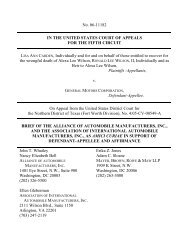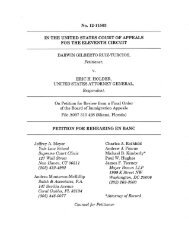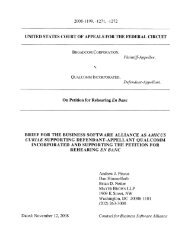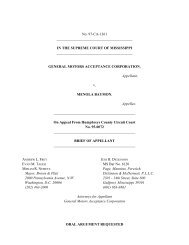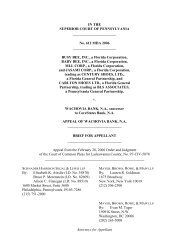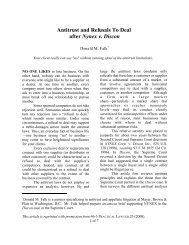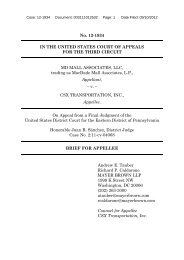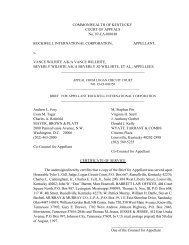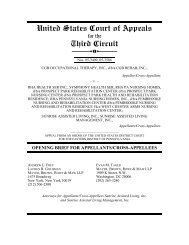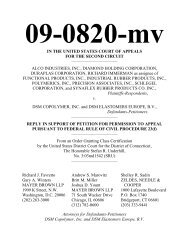No. 5-99-0830 IN THE APPELLATE COURT OF ... - Appellate.net
No. 5-99-0830 IN THE APPELLATE COURT OF ... - Appellate.net
No. 5-99-0830 IN THE APPELLATE COURT OF ... - Appellate.net
Create successful ePaper yourself
Turn your PDF publications into a flip-book with our unique Google optimized e-Paper software.
sovereignty embodied in the Constitution as a whole, the Supreme Court has repeatedly<br />
rejected states’ attempts to “control conduct beyond the boundaries of the State” and regulate<br />
“commercial activity occurring wholly outside” their borders. Healy v. Beer Inst., 491 U.S.<br />
324, 336-37 (1989); Brown-Forman Distillers Corp. v. New York State Liquor Auth., 476<br />
U.S. 573, 582-83 (1986) (rejecting New York’s attempt to “project its legislation” into other<br />
states).<br />
The Supreme Court’s most recent case on the subject — BMW of N. Am., Inc. v.<br />
Gore, 517 U.S. 559 (1<strong>99</strong>6) — is controlling here. In BMW, the defendant automobile<br />
distributor had a policy of not disclosing post-manufacturing repairs it had made to vehicles<br />
if the cost of the repairs was less than 3% of the vehicle’s suggested retail price. Id. at 563-<br />
64. The 3% threshold comported with the statutes and regulations of every state that had<br />
affirmatively addressed the subject. Id. at 565. The plaintiff, an Alabama consumer,<br />
brought suit under Alabama’s general fraud law, and urged the jury to punish BMW $4,000<br />
for each of the roughly 1,000 vehicles it had sold nationwide without disclosure of repairs.<br />
The jury agreed, returning a punitive award of $4 million. Id. at 564-65. In reviewing the<br />
punitive award, the Supreme Court held that an Alabama jury could not punish the defendant<br />
under Alabama law for transactions that occurred outside of Alabama. The Court explained:<br />
[B]y attempting to alter BMW’s nationwide policy, Alabama would be infringing on<br />
the policy choices of other States. . . . Alabama may insist that BMW adhere to a<br />
particular disclosure policy in that State. Alabama does not have the power,<br />
however, to punish BMW for conduct that was lawful where it occurred and that had<br />
no impact on Alabama or its residents.<br />
Id. at 572-73 (emphasis added). BMW is dispositive here. Just as Alabama was not entitled<br />
to apply its fraud law nationwide to punish BMW for transactions that occurred entirely in<br />
-118-



